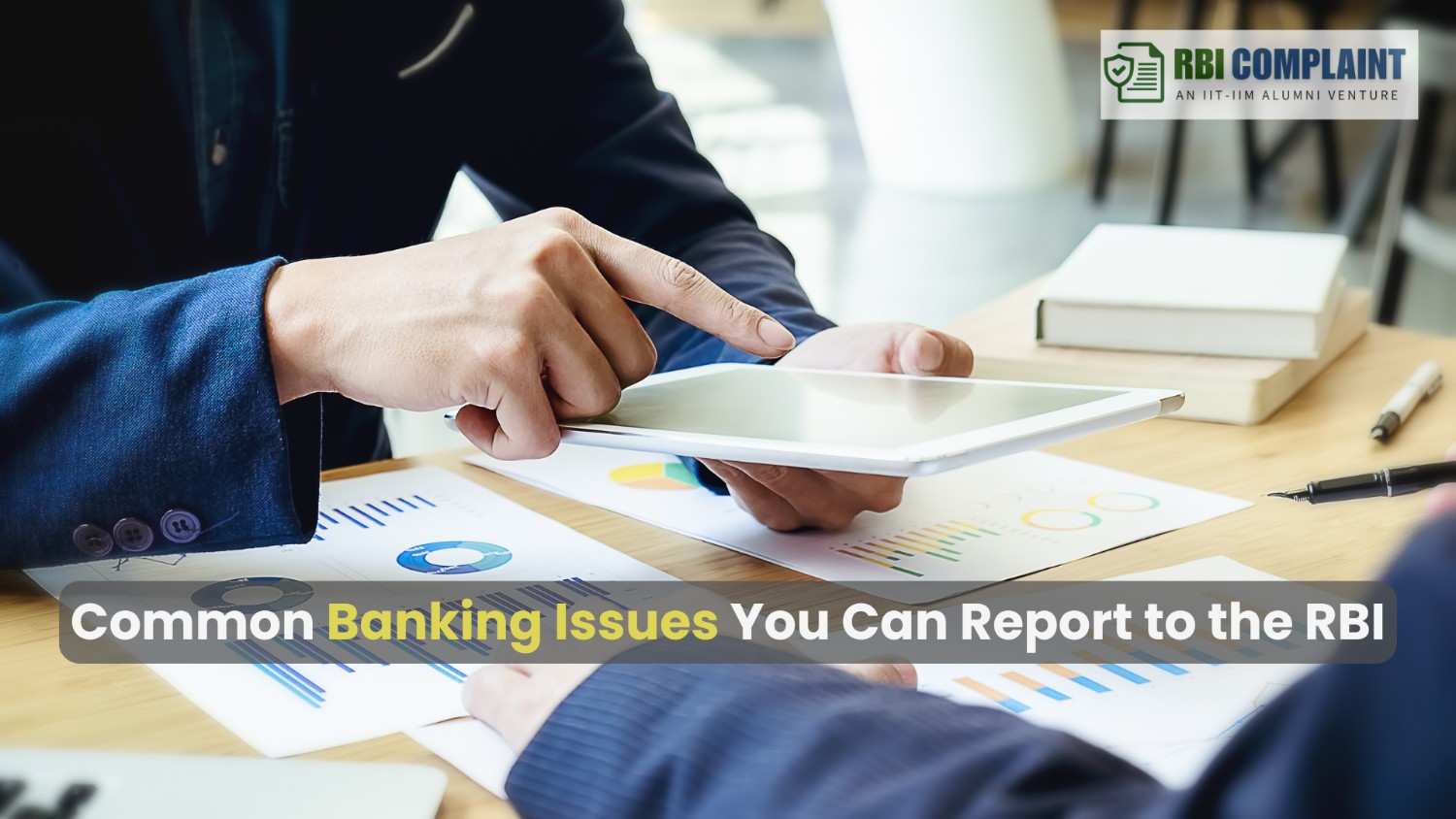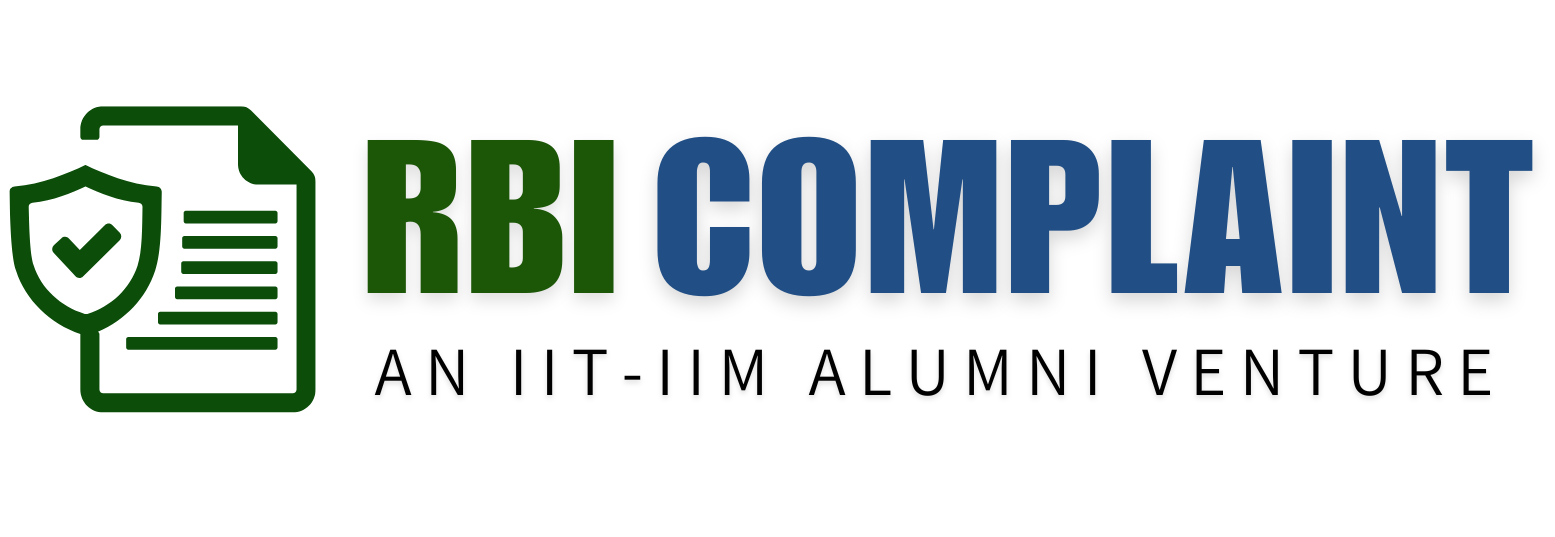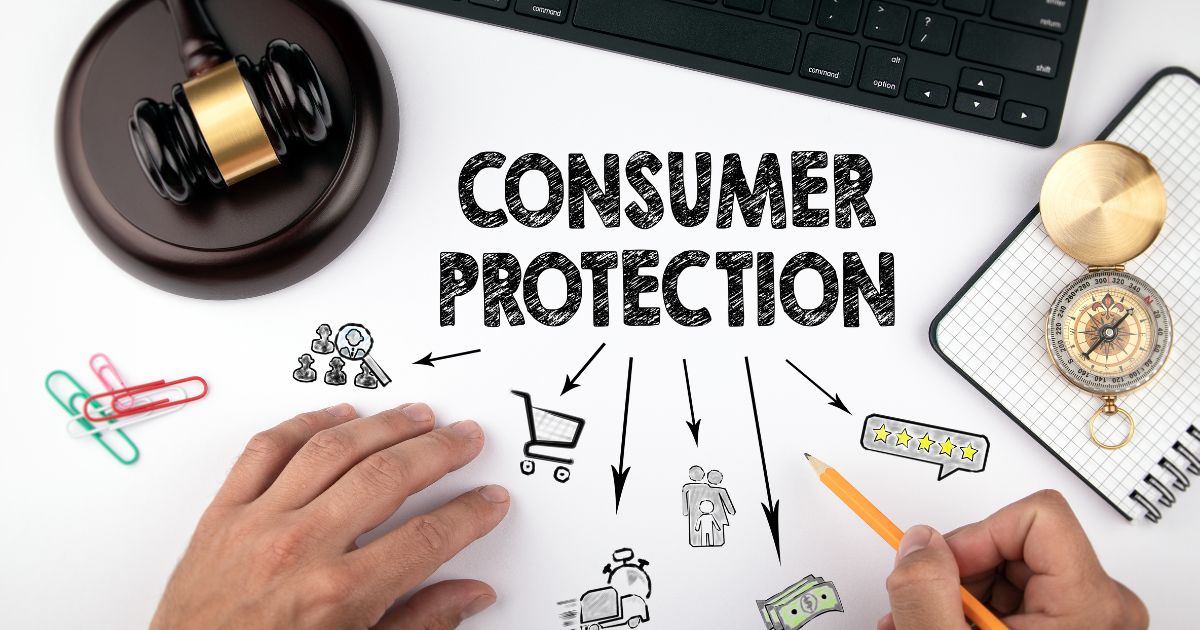· Legal & Compliance · 5 min read
Common Banking Issues You Can Report to the RBI
Discover common banking issues you can report to the RBI, including fraud, service delays, unfair fees, and loan disputes. Get your complaints resolved!

Common Banking Issues You Can Report to the RBI
The Reserve Bank of India (RBI) serves as the central banking institution of India, responsible for regulating and overseeing the country’s financial system. As a consumer, if you experience issues with your bank that are unresolved, the RBI provides mechanisms to report your grievances. Understanding which banking problems can be escalated to the RBI is crucial for ensuring that your financial rights are protected.
Here’s a breakdown of the common banking issues you can report to the RBI and how to proceed if you face them.
1. Delay in Resolving Complaints
Banks are required to address consumer complaints within a stipulated time, typically 30 days. If your bank fails to resolve your issue within this time frame or provides an unsatisfactory response, you can approach the RBI’s Banking Ombudsman. This is particularly relevant for matters like account discrepancies, loan disputes, and errors in transaction processing.
2. Unauthorized or Fraudulent Transactions
If you experience unauthorized transactions on your account, such as fraudulent charges or hacking, your bank should take swift action. If the bank does not help in reversing such transactions or securing your account, you can escalate the issue to the RBI.
Some common unauthorized transactions include:
ATM or debit card fraud
Internet banking fraud
Unauthorized mobile banking transactions
3. Non-Adherence to Fair Practices Code
Banks in India must follow the Fair Practices Code, which covers aspects like transparency in loan agreements, clear communication regarding charges, and ensuring ethical debt collection practices. If you feel your bank has misled you, hidden important terms, or acted unethically, you can lodge a complaint with the RBI.
Examples include:
Not disclosing charges and penalties clearly
Adding hidden costs to loans
Harassing you for loan repayments
4. Failure to Meet Basic Banking Services
Banks are mandated to provide basic banking services such as opening and closing accounts, issuing passbooks, updating KYC (Know Your Customer) details, and processing cheques or drafts. If your bank refuses to offer these services or creates unnecessary delays, it constitutes a valid reason to report to the RBI.
5. Issues with Loan and Credit Facilities
Many customers encounter problems related to loans, such as:
Non-issuance of No Dues Certificate post loan repayment
Unreasonable delay in sanctioning loans
Charging high interest rates without prior notice
Mismanagement of EMI payments
If your bank fails to address these concerns, you can escalate the matter to the RBI.
6. Mis-selling of Products
Many customers fall victim to mis-selling, where they are sold financial products like insurance or investment schemes without fully understanding the terms or benefits. If the bank has sold you an unsuitable product, coerced you into purchasing, or provided incorrect information, you can file a complaint with the RBI.
7. Excessive or Hidden Charges
Banks often levy various charges, such as for ATM withdrawals, minimum balance non-maintenance, loan processing fees, or account closure. If these charges are exorbitant or not clearly disclosed upfront, it is considered unfair practice, and you can raise the issue with the RBI.
8. Delayed or Denied Payment of Deposits
Fixed deposits, savings accounts, and recurring deposits form the foundation of banking for many customers. If there is any undue delay in disbursing these funds or if the bank denies your rightful payment, it can be escalated to the RBI.
9. Non-Credit of Fund Transfers
With the increasing use of electronic fund transfers like NEFT, RTGS, and UPI, issues such as non-credit of funds into your account after a transaction are not uncommon. If the bank is unable to resolve these fund transfer problems promptly, you can report the matter to the RBI.
10. Disputes Regarding Charges for Failed ATM Transactions
ATM transaction failures, especially in cases where money is debited but not dispensed, are a common grievance. Banks are supposed to reverse such amounts quickly, typically within 7 working days. If they fail to do so or if they do not provide proper redressal for the loss, you can seek help from the RBI.
How to File a Complaint with the RBI
**Attempt to Resolve with Your Bank First
**Always approach your bank’s customer service department first. Every bank has a grievance redressal system, and many issues can be solved at this level. However, if the bank does not respond within 30 days or if you are dissatisfied with the resolution, you can escalate it to the RBI.**Lodge a Complaint with the Banking Ombudsman
**The Banking Ombudsman scheme is a cost-free dispute resolution mechanism available for customers. You can lodge a complaint online at the RBI’s Complaint Management System (CMS) portal: https://cms.rbi.org.in.**Provide Required Documentation
**When filing a complaint, make sure to provide all relevant details and supporting documents, such as:Copies of communication with the bank
Details of the issue (transaction receipts, statements, etc.)
Any written responses from the bank
**Follow the Progress of Your Complaint
**The CMS portal allows you to track the progress of your complaint, ensuring transparency in the grievance redressal process.
Conclusion
The Reserve Bank of India is dedicated to safeguarding the interests of banking consumers. By understanding your rights and knowing when and how to escalate issues, you can ensure that your banking problems are resolved efficiently and fairly. Always try to resolve disputes with your bank first, but rest assured that the RBI’s redressal mechanisms are in place if your concerns remain unresolved.



